freespeech
Latest
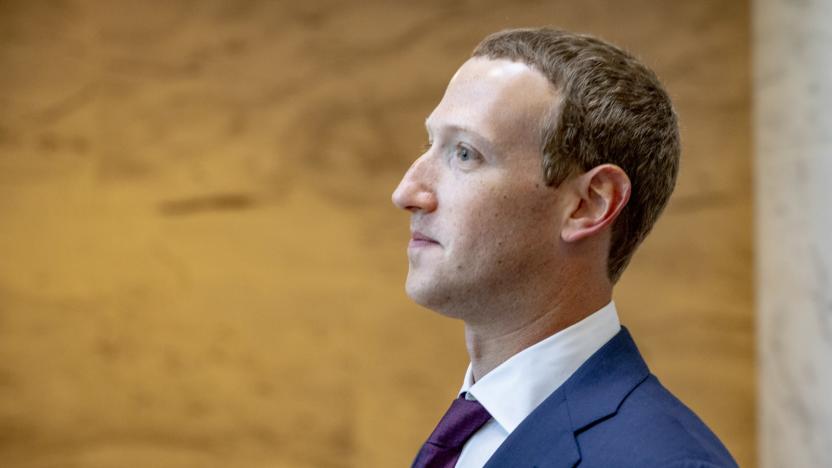
Mark Zuckerberg will stream a speech on ‘free expression’ Thursday
Facebook CEO Mark Zuckerberg is planning to give a speech Thursday about his views on free expression and voice. Zuckerberg wrote in a Facebook post that it's the "most comprehensive take I've written about my views, why I believe voice is important, how giving people voice and bringing people together go hand in hand, how me might address the challenges that more voice and the internet introduce, and the major threats to free expression around the world."
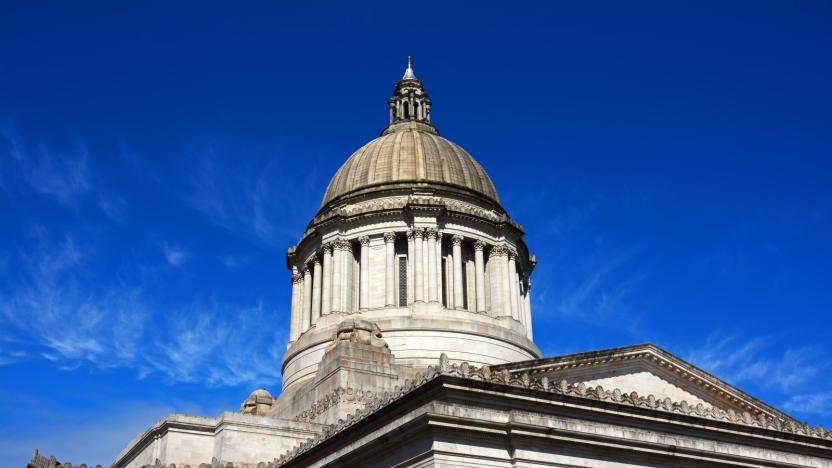
Judge says Washington state cyberstalking law violates free speech
Washington was one of the first states to fight cyberstalking through legislation, but it may have to rethink its approach. A federal judge has blocked the state's 2004 law after ruling that a key provision violated First Amendment protections for free speech due to vague terms. Its prohibitions against speech meant to "harass, intimidate, torment or embarrass" weren't clearly defined, according to the judge, and effectively criminalized a "large range" of language guarded under the Constitution. You could theoretically face legal action just by criticizing a public figure.
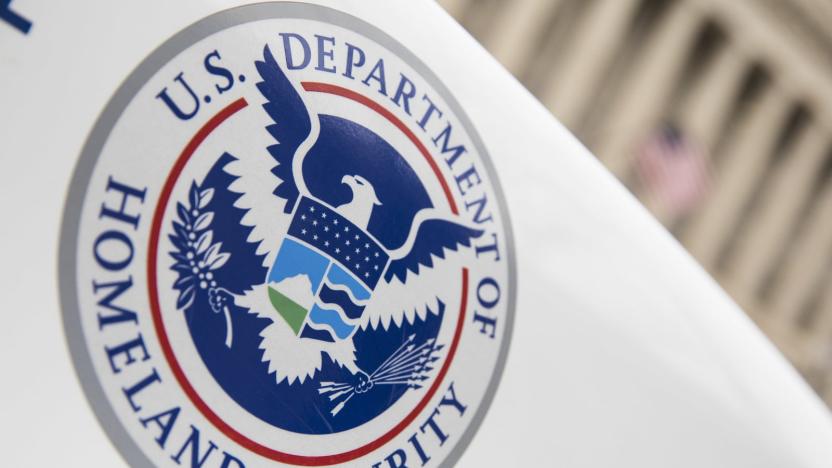
ACLU sues US government over social media surveillance of immigrants
The ACLU has sued the federal government, naming the Department of Justice, the FBI, the Department of Homeland Security, ICE, US Customs and Border Protection, US Citizenship and Immigration Services and the State Department as defendants. The civil rights organization is seeking information regarding the government's practice of monitoring immigrants' and visa applicants' social media accounts, information that it says these agencies have been withholding.

Banning Alex Jones proves Twitter can’t be impartial
All efforts to save @RealAlexJones and @InfoWars from themselves have failed, and you can blame Jack Dorsey for that. Whether or not he intervened in applying a seven-day suspension for rulebreaking tweets (the company denies it) he's successfully undermined the values Twitter claims to hold high. A month ago, when YouTube and Facebook took action against the accounts, Dorsey said: "We're going to hold Jones to the same standard we hold to every account, not taking one-off actions to make us feel good in the short term, and adding fuel to new conspiracy theories." So how'd that work out? Twitter claims justification for the ban comes from tweets and videos posted yesterday targeting CNN reporter Oliver Darcy. Unfortunately, we won't ignore the fact that this action occurred within 24 hours of its CEO being personally exposed to Jones' outrage. If Twitter wants to show, as Jack told Congress yesterday, that "Impartiality is our guiding principle" then it's difficult to imagine a more spectacular example of failure.
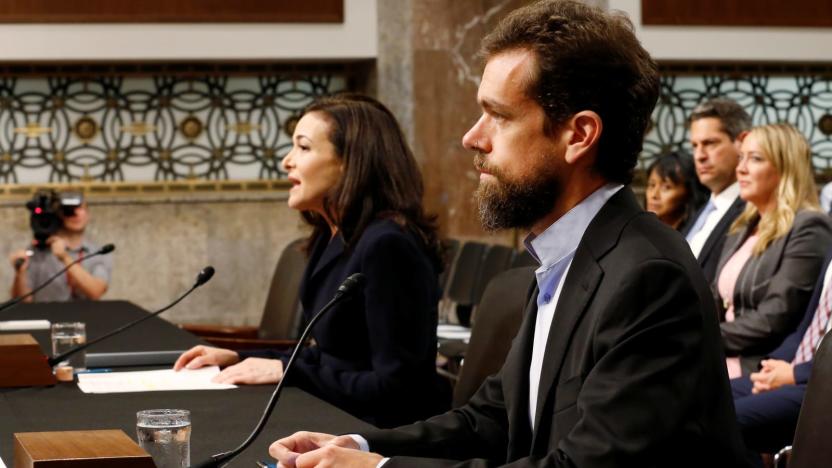
Jeff Sessions worries social networks are 'intentionally stifling' speech
You can add another voice to the chorus of right-wing figures alleging (or insinuating) that internet giants may be biased against conservatives. The Justice Department has confirmed to TechCrunch that US Attorney General Jeff Sessions is meeting with state AGs later in September to talk about a "growing concern" that social networks might be hurting competition and "intentionally stifling the free exchange of ideas." The DOJ didn't say whether Sessions was calling for regulation or formally investigating the companies' practices.

Microsoft threatened to unplug Gab over anti-Semitic posts
After Milo Yiannopoulos got banned from Twitter, he and his followers moved to Gab, a social network priding itself on free speech that has become popular with conservatives and the alt-right. But it appears the platform's hosting provider Microsoft Azure isn't okay with the most extreme views appearing on Gab. Today, the tech giant gave the site two days to pull two posts with anti-Semitic content or it would stop serving it, which could have taken Gab down for weeks or months. They were soon deleted by the individual who made the posts: Far-right Senate candidate Patrick Little.
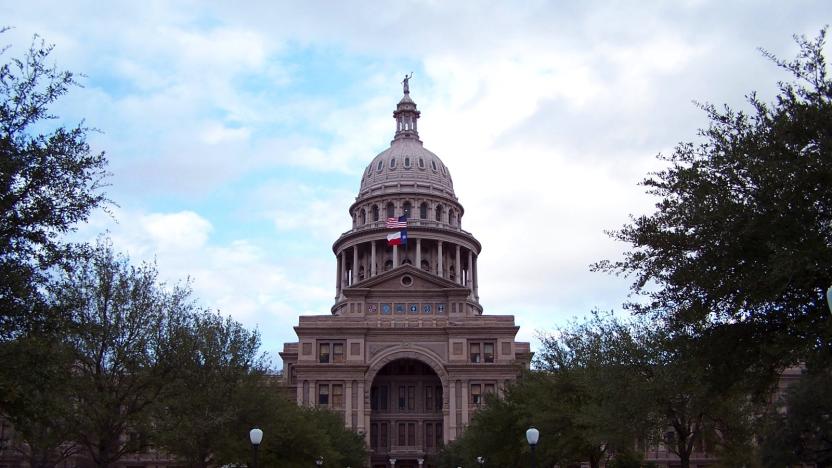
Texas court rules 2015 revenge porn law is unconstitutional
Revenge porn is getting attention across the nation as state, regional and even federal lawmakers wrestle with how to deal with the practice of posting private, intimate photos of people without their permission. A 2015 Texas law that made revenge porn a misdemeanor with up to a year of jail time and a $4,000 fine was struck down by the 12th Court of Appeals as violating the First Amendment. The court also dropped a charge against Jordan Bartlett Jones, who challenged the law after he was denied a Writ of Habeas Corpus last year.

YouTube bans Neo-Nazi group following backlash over hate speech
YouTube has banned the Neo-Nazi group Atomwaffen, but only after a Daily Beast report shamed the platform for its inaction. Since the Logan Paul fiasco, YouTube introduced a stricter content policy and (somewhat) more serious consequences for content that harms the community, but it took reports from ProPublica, Vice and The Daily Beast in the last week before Atomwaffen was banned.

Telegram suspends channel for encouraging violent Iran protests
Iran is currently engulfed in demonstrations: many are protesting the clerical leadership, corruption and increasing costs of living, while counter-protestors are trying to protect the regime. And Telegram finds itself caught in the middle. The chat service has suspended the Amadnews channel after it started encouraging subscribers to lob Molotov cocktails at police, breaking the company's policy against calls for violence. The move came after Iran telecoms minister Mohammad-Javad Azari Jahromi complained to company founder Pavel Durov, who said Telegram would have to block the channel if it was promoting violence as claimed.

China's censors have taken down 13,000 websites in 3 years
It's no secret that China is fond of censorship. Now, however, the country has divulged numbers that give a sense of that crackdown's scale. A report from the Standing Committee of the National People's Congress has revealed that China has either shut down or revoked licenses for more than 13,000 websites since the start of 2015, or just under 3 years ago. It had also prompted the closure of nearly 10 million internet accounts (most likely social network accounts). To no one's surprise, there's a heavy amount of spin on the reasons these sites and accounts were taken down.

Al Jazeera’s Snapchat channel blocked in Saudi Arabia
Al Jazeera's Snapchat presence is the latest casualty in the ongoing diplomatic crisis between Qatar and its neighbors in the Middle East. The Wall Street Journal is reporting that Snap has blocked the news outlet's channel in Saudi Arabia. Al Jazeera is describing the ban as "an attempt to silence freedom of expression."
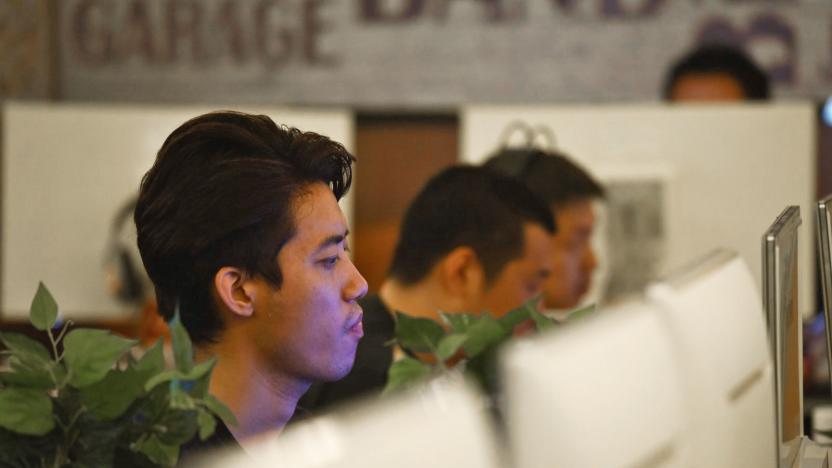
China orders internet comments linked to real identities
China isn't slowing down in its bid to silence online political opposition. As of October 1st, the country will require that tech firms hold on to records of the real identities of everyone posting comments on internet message boards. This is to discourage "false rumors, filthy language and illegal messages," according to the government. Of course, it's that last part that Chinese officials are really interested in -- they know you're less likely to challenge the political order if investigators can easily track you down.

Options for neo-Nazis on the internet are starting to shrink
If you're an American who's ever wondered what it would be like to have had the internet and today's technology during the time of Nazi ascension in Germany, take a look around. You're soaking in it. While a whole lot of us have been aware of this since at least last year's election, it's only now starting to sink in for companies who control the internet. Bitterly, only after the literal killing of people in the streets by white supremacists. Who, until this week, enjoyed using online services for their organizing, sharing, harassing, business needs and getting hateful shit done.

EFF warns blocking neo-Nazi sites may threaten free speech
The Electronic Frontier Foundation (EFF) has criticized internet providers for blocking the neo-Nazi website The Daily Stormer, saying it violates the principals of free speech and could backfire. "We strongly believe that what GoDaddy, Google and Cloudflare did here was dangerous," it said in a blog post. "We would be making a mistake if we assumed that these sorts of censorship decisions would never turn against causes we love."
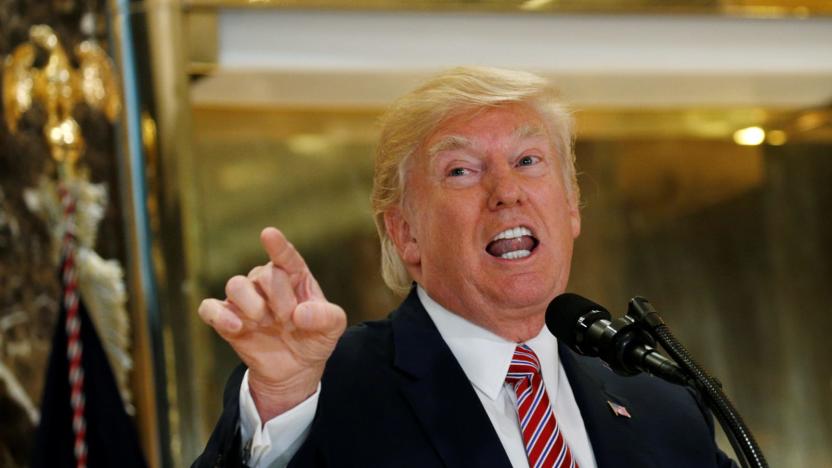
Twitter’s dilemma: What to do with Trump?
"My use of Twitter is not presidential," said President Donald Trump on Twitter last month, before adding the kicker in emphatic all caps: "it's MODERN DAY PRESIDENTIAL." Yet nearly seven months into his presidency, Trump has so flabbergasted the public with his tweets that there has been a relentless stream of calls for Twitter to suspend his account.
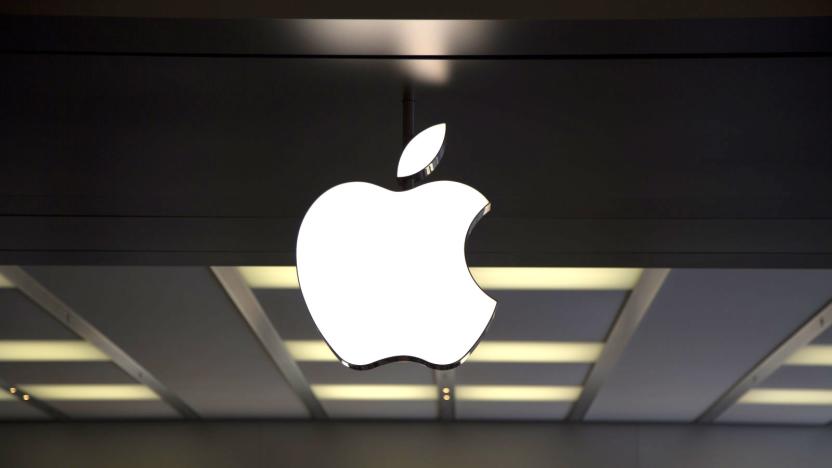
What you need to know about Apple, VPNs and China
On July 29th, Apple began notifying VPN companies that their apps would shortly be pulled from the App Store in China. In a statement, ExpressVPN said that the move was "surprising and unfortunate" and that it was "disappointed in this development." But is this a case of Apple essentially capitulating in a privacy and censorship fight with the Chinese government?

China orders telecoms to block personal VPNs by February
China declared that virtual private networks were illegal back at the start of the year, and now it's giving telecoms no choice but to fall in line. Bloomberg sources understand that the government has told carriers to block individual access to VPNs by February 1st. Companies can still use VPNs internally, and will reportedly be allowed to use leased lines (registered with officials, of course) to access the full internet, but everyone else appears to be out of luck.

Germany can fine Facebook up to $57 million over hate speech
Germany has passed a contentious law allowing fines of up to €50 million ($57 million) for social networks like Facebook and Twitter if they don't pull hate speech down quickly enough. Called the Network Enforcement Act or "Facebook Law," it was passed by Germany's parliament on Friday, and will go into effect starting this October.

Supreme Court rules sex offenders can use social networks
It's understandable why governments would want to keep sex offenders away from social networks -- you don't want predators messaging their potential targets. Is an outright ban taking things a step too far, though? The US Supreme Court thinks so. As part of a ruling in a case where a college student preyed on an underage girl, the court has struck down a North Carolina law preventing sex offenders from visiting social internet sites that children might frequent. Simply speaking, the law was so broad that it violated free speech rights, disconnecting offenders from modern life.

Facebook: German bill isn't 'suitable' to fight hate speech
Germany says sites like Facebook and Twitter aren't doing enough to combat hate speech and fake news on their platforms. The country's Ministry of Justice proposed a bill that, if approved, would fine social networks and other websites up to 50 million euros ($53 million) if they don't remove the content quickly. Well, Facebook says the Network Enforcement Act (Netzwerkdurchsetzungsgesetz or NetzDG in German) in its current form is "not suitable to combat hate speech and false news."











